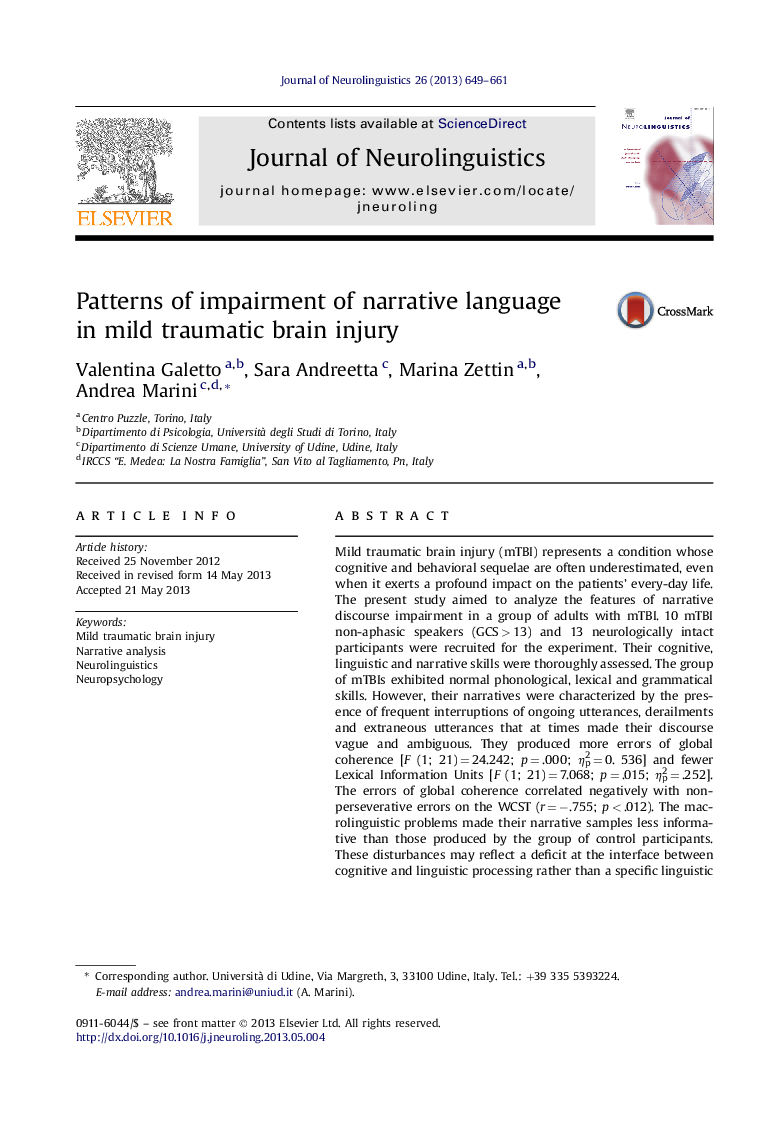| Article ID | Journal | Published Year | Pages | File Type |
|---|---|---|---|---|
| 911810 | Journal of Neurolinguistics | 2013 | 13 Pages |
•We analyzed narrative discourse in mild TBI non-aphasic speakers.•They had adequate microlinguistic skills.•They could identify a good amount of information.•They couldn't organize it at the macrolinguistic level of narrative processing.•A deficit at the interface between cognitive and linguistic processing is postulated.
Mild traumatic brain injury (mTBI) represents a condition whose cognitive and behavioral sequelae are often underestimated, even when it exerts a profound impact on the patients' every-day life. The present study aimed to analyze the features of narrative discourse impairment in a group of adults with mTBI. 10 mTBI non-aphasic speakers (GCS > 13) and 13 neurologically intact participants were recruited for the experiment. Their cognitive, linguistic and narrative skills were thoroughly assessed. The group of mTBIs exhibited normal phonological, lexical and grammatical skills. However, their narratives were characterized by the presence of frequent interruptions of ongoing utterances, derailments and extraneous utterances that at times made their discourse vague and ambiguous. They produced more errors of global coherence [F (1; 21) = 24.242; p = .000; ηp2 = 0. 536] and fewer Lexical Information Units [F (1; 21) = 7.068; p = .015; ηp2 = .252]. The errors of global coherence correlated negatively with non-perseverative errors on the WCST (r = −.755; p < .012). The macrolinguistic problems made their narrative samples less informative than those produced by the group of control participants. These disturbances may reflect a deficit at the interface between cognitive and linguistic processing rather than a specific linguistic disturbance. These findings suggest that also persons with mild forms of TBI may experience linguistic disturbances that may hamper the quality of their every-day life.
